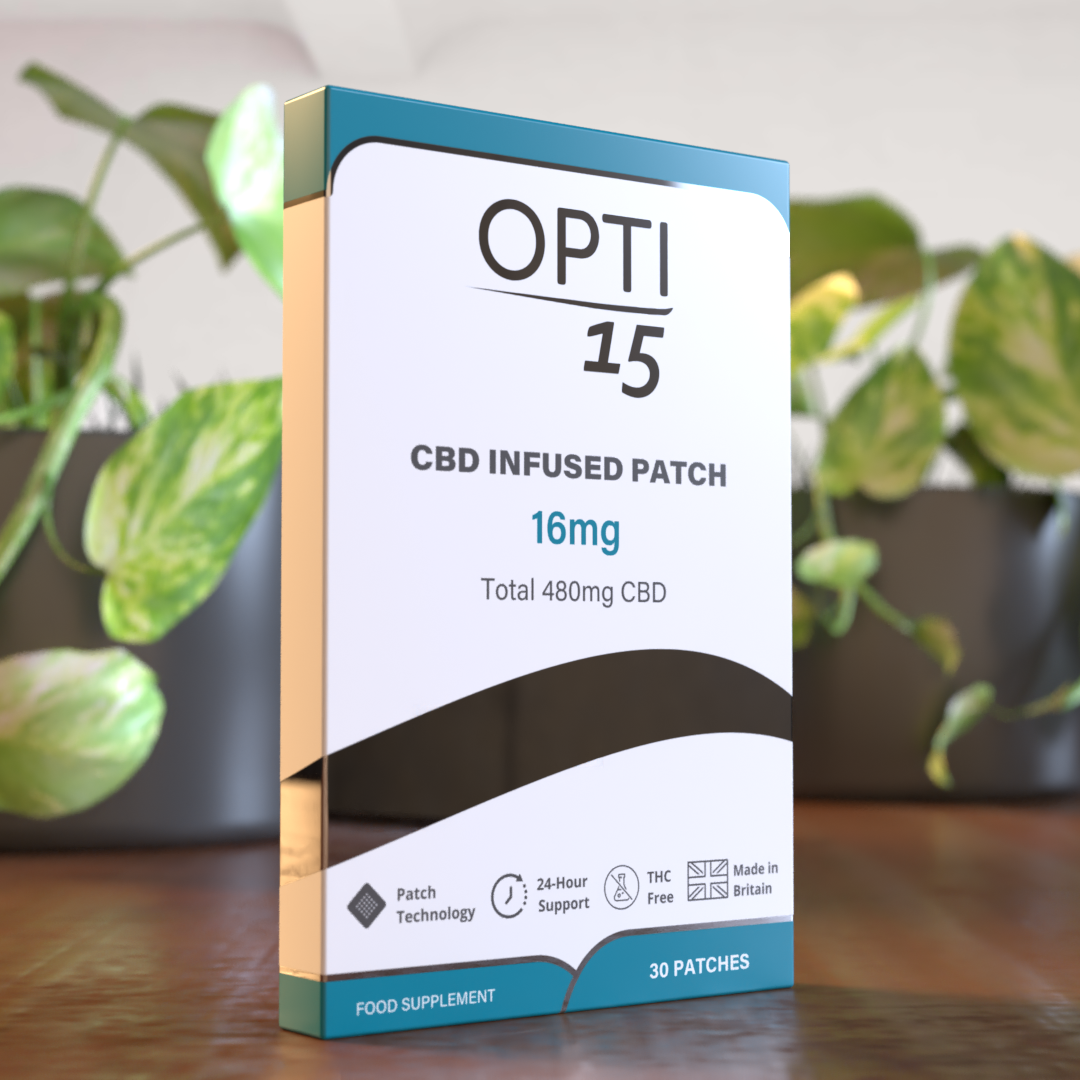What Is PCOS? Natural Ways to Manage Symptoms with Organic Supplements

Polycystic Ovary Syndrome (PCOS) is a complex hormonal disorder that affects millions of women worldwide, especially those of reproductive age. There are many conventional treatments and medicines available for treatment, but many women also seek natural ways to get rid of this issue. This article will discuss what PCOS is and how we can manage its symptoms naturally.
What is PCOS?
PCOS, or polycystic ovarian syndrome, is a group of symptoms brought on by a hormone imbalance in women. It affects the ovaries. These are the tiny organs where a woman's eggs are kept. The rest of the body, however, may also be impacted. One of the most prevalent conditions among women of childbearing age is PCOS. Sometimes, if left untreated, it might result in major health problems.
When an ovary releases a fully developed egg, ovulation occurs. This takes place so that a male sperm can fertilize it. During your period, the egg is expelled from the body if it is not fertilized. Women may occasionally produce insufficient amounts of the hormones required for ovulation.
In the absence of ovulation, the ovaries may produce several tiny sacs filled with fluid, known as cysts. These cysts produce androgens, which are hormones. Women often have lower levels of androgens, a type of hormone that is typically seen in greater quantities in men. Androgen levels are frequently elevated in women with PCOS. This may result in more issues with a woman's menstrual cycle. This will also result in various PCOS-related symptoms.
Causes of PCOS:
Experts are unsure of the precise cause of PCOS. Women with PCOS frequently experience insulin resistance. Thus, the body is unable to effectively use insulin. Increased testosterone levels may result from the body's accumulation of insulin. Additionally, obesity raises insulin levels and exacerbates PCOS symptoms.
PCOS symptoms:
Numerous hormonal and physical symptoms are present in PCOS, such as:
- Acne: Usually affects the face, back, and chest.
-
Fatigue: Hormonal imbalances, insulin resistance, and sleep disturbances are some of the factors that lead to PCOS-related fatigue, which makes one feel lethargic and exhausted. Additionally, sleep apnea, which can result in severe daytime weariness, is more common in women with PCOS.
-
Hair loss or thinning: These conditions are brought on by hormonal abnormalities. It is most frequently seen in women as male-pattern baldness.
-
Infertility: It is challenging to conceive due to hormonal disorders that interfere with ovulation.
-
Missed periods: Patients may experience irregular or non-existent periods for several months or longer. It's unpleasant and weighty when they do.
-
Pain: This may be brought on by chronic inflammation, excessive menstrual flow, or ovarian cysts. One of these things may be the reason for your insomnia if you have PCOS pain, but it's crucial to consult your doctor about other potential causes as well.
-
Skin darkening: Also known as acanthosis nigricans, this condition primarily affects skin folds, including the groin, armpits, and under the breasts.
-
Unwanted hair: Increased testosterone levels can cause unwanted hair growth, or hirsutism, on a woman's face, upper lip, chest, or back.
- Weight gain or trouble reducing weight: PCOS frequently results in insulin resistance, which restricts the body's ability to use insulin effectively and causes fat to be stored.
How is PCOS diagnosed?
Your doctor will inquire about your medical history and current symptoms. There will also be a physical examination. This will probably involve a pelvic examination. The condition of your reproductive organs, both internal and external, is assessed during this examination. Several PCOS symptoms are similar to those of other medical conditions. You might thus additionally undergo tests like an ultrasound and a blood test.

Treatment for PCOS:
Several factors influence PCOS treatment. These could include your age, the intensity of your symptoms, and your general health. The kind of treatment you receive may also be influenced by your future desire to get pregnant.
If pregnancy is your goal, then treatment consists of:
A change in diet and exercise:
You can lower your symptoms and decrease weight by eating a nutritious diet and exercising more. They can also lower blood glucose, aid in ovulation, and improve your body's usage of insulin.
Medications that cause ovulation:
Some medicines may help the ovaries release eggs. However, there are side effects associated with these medications as well. They can lead to multiple births (twins or more). Moreover, they may result in ovarian hyperstimulation. When the ovaries release an excessive amount of hormones, this occurs. It may result in symptoms including pelvic pain and bloating in the tummy.
If not pregnant, then birth control pills, diabetes medicine, and medicines to treat other symptoms are given.
-
Pills for birth control: These aid in reducing acne, lowering testosterone levels, and managing menstrual periods.
-
Medication for diabetes: In PCOS, this is frequently used to reduce insulin resistance. Additionally, it may help you ovulate more frequently, inhibit hair development, and lower testosterone levels.
-
A shift in exercise and nutrition: You can lessen your symptoms and decrease weight by eating a nutritious diet and exercising more. They may also aid in ovulation, reduce blood glucose, and improve your body's utilization of insulin.
- Medications to address other symptoms. Certain medications can lessen acne or hair development.
Natural ways to help with PCOS:
In addition to lifestyle modifications, many women use natural remedies and organic supplements. Although studies are still being conducted, several natural substances appear to have potential for treating PCOS symptoms. Here are a few of the most researched and widely used methods.
Inositol:
One B vitamin that aids with insulin resistance is inositol. It has been shown to improve fertility in certain PCOS conditions.
Chromium:
Chromium supplements may increase your body mass index, which may help with PCOS. By assisting your body in metabolizing sugar, they may also help normalize insulin resistance.
Cinnamon:
Cinnamon comes from the bark of a cinnamon tree. Studies suggest that cinnamon extract improves insulin resistance. For women with PCOS, cinnamon may also control menstruation.
Turmeric:
Curcumin is the active component in turmeric. Turmeric may be promising for decreasing insulin resistance and as an anti-inflammatory agent.
Evening Primrose oil:
Period pain and irregular menstruation can be treated with evening primrose oil. Additionally, it may lower oxidative stress and cholesterol, two factors associated with PCOS.
Calcium and vitamin D together:
One hormone that is essential to your endocrine system is vitamin D. Women with PCOS frequently have vitamin D insufficiency. Calcium and vitamin D may help you ovulate and improve irregular periods.
Oil from cod liver:
Omega-3 fatty acids and vitamins D and A are abundant in cod liver oil. These acids can aid in reducing belly fat and enhancing regular menstruation.
Living with PCOS:
Acne, weight gain, and hair growth are some of the physical signs of PCOS that some women face. Laser hair removal and electrolysis are two cosmetic procedures that might improve your self-esteem. Discuss the most effective treatments for the symptoms that are bothering you with your healthcare professional.
Conclusion:
Due to its complexity, PCOS requires a thorough, customized approach. Although there is no cure, a mix of natural therapies and lifestyle modifications can help manage its symptoms and enhance quality of life. Organic supplements that promote hormonal balance, metabolic health, and fertility include inositol, curcumin, vitamin D, CoQ10, and a variety of herbs. A comprehensive approach to naturally controlling PCOS is offered by combining these techniques with stress reduction, regular exercise, and a nutritious diet.
Before making big changes to your health regimen, always get advice from a healthcare provider. Women with PCOS can make significant progress toward improved health and well-being with the correct assistance and a proactive attitude.

